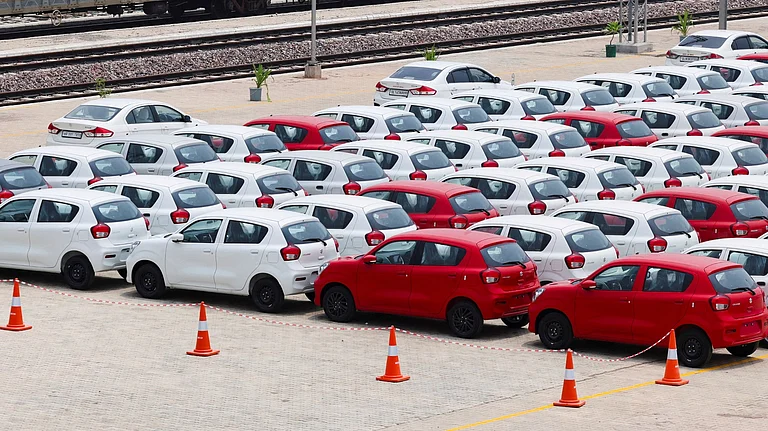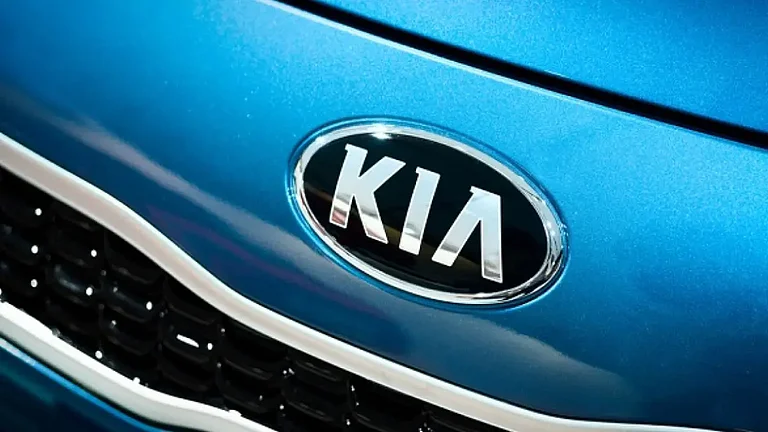January 21, 2025 began as any other day for Vishal Choudhary, a customer of Kia India—an auto manufacturing company—who took his car to the authorised dealership centre for routine servicing. But little did the 31-year-old know that the very place he trusted to fix his car would end up causing more damage to it. Following the car service, several new problems emerged, such as the absence of the heat-resistant metal on the silencer, improperly tightened nuts and bolts on the gate, and various leaks in the vehicle.
Choudhary told Outlook Business that after months of back and forth with the dealer to get the damages fully repaired, he finally wrote an email to Kia India. Adding to his dissatisfaction, the South Korean car manufacturer’s wholly owned Indian subsidiary did little to resolve the issue, he said. At last, Choudhary resorted to social media to flag his concerns. Later, Kia India’s dealership, Sky Masters (Shree Kia), on July 16 sent him a legal notice alleging that his posts were defamatory in nature and should be deleted.
“I bought the car thinking of Kia. I did not think that I was buying a car from the dealer Shri Kia Devas Naka, Indore. I thought I was buying a car from the South Korean company, whose responses I had heard were good,” said the 31-year-old Kia India customer.
No Policy, No Gain
Experts pointed out that the repair order clearly states that the dealership is the custodian of the customer’s vehicle while it is in servicing. If damage occurs during this period, a prevalent practice adopted by dealers across auto companies is to get it fixed under the vehicle insurance. But there is no legal or compliance policy between the dealer and the manufacturer or even the customer or manufacturer that charts out a course of action if a customer is dissatisfied with the repairs.
“It is clearly mentioned [in the repair order] that the dealerships are custodians of their vehicle for conducting repairs. If anything untoward happens during the period, the dealership is responsible to get it fixed under the vehicle insurance,” auto expert and former president, Federation of Automobile Dealers Associations (FADA), Vinkesh Gulati told Outlook Business. “But if the customer still is not satisfied, there is no compliance policy detailing such incidents between the parties,” Gulati added.
The query sent to Kia India, Sky Masters (Shree Kia) Dealership, Hyundai Motor India, Tata Motors, Maruti Suzuki, Toyota Kirloskar Motor, JSW MG Motor India and Mahindra & Mahindra did not receive any response till the time of publication.
Anurag Singh, managing director–manufacturing and automobile lead, Primus Partners told Outlook Business that auto companies maintain a stronghold over their dealership. Things like the kind of enterprise the dealer is, services to be delivered by them, training of technicians and mechanics and the type of equipment and processes to be used—everything is controlled by the manufacturer.
“Most manufacturers have ‘dealership standards’ that include having a corporate identity and standards in terms of size, equipment, IT and staff, etc. These are all designed to give a uniform customer experience across dealerships. The manufacturers ‘hand hold’ as well as ‘dictate’ these standards,” said Singh.
Where Policy Fails, Law Applies
But just because there is no policy does not mean the aggrieved customer has no legal remedy. Legal experts said the authorised dealer and auto company can be held liable under contract law as well as consumer law.
Rajesh Rai, managing partner, RR Legal Partners, a corporate law firm, said the dealer is responsible for taking reasonable care of the vehicle and returning it in proper condition after due repair. In case of failure to fulfil this responsibility, the dealership can be held liable for the damages under the Consumer Protection Act, 2019.
“The authorised dealer service centre shall be directly liable for the damages caused to the vehicle while it was in their custody for servicing,” said Rai.
Commenting on the prevalent practice of using vehicle insurance, Rai highlighted that in case the damage occurred due to the mistake of the dealer’s technician or mechanics, the customer can't be forced to use his insurance.
“As per the Consumer Protection Act, 2019, the following provisions are relevant i.e. deficiency in services and unfair trade practices for inducing or coercing the consumer to utilise insurance, particularly when the damage was admittedly caused by the dealer’s own personnel,” Rai added.
The auto company, on the other hand, can be held responsible depending upon the extent of control and representation the auto company has in the dealership. By using the brand name and logo, the dealership acts as an agent of the manufacturer. Hence, the liability arises from the principal-agent relationship under the Indian Contract Act, 1872.
“In a case where the auto company has 100% control over the service centre, the service centre can be considered as an agent to the auto company and the firm, being the principal, can be held liable for the acts of the service centre,” said practising advocate and founder of RTA Law Chambers, Rhea Luthra. “In cases of authorised dealer, one may see that the service centre exclusively uses the brand name and logo of the auto company, basis which a consumer may have a legitimate expectation in terms of quality of services being offered, making the auto company liable for the acts of the dealership,” Luthra added.
While legal solutions do exist, lack of comprehensive policy to deal with issues, especially in the case of damage caused to the vehicle in servicing, has left the customer hanging dry between the dealer and the manufacturer.





































